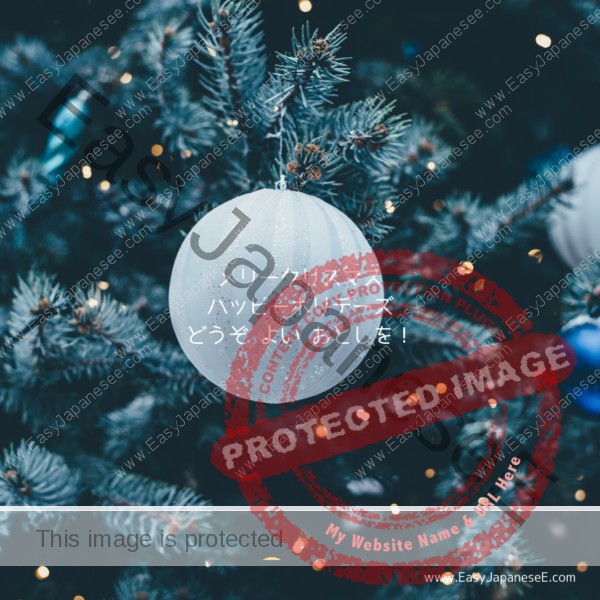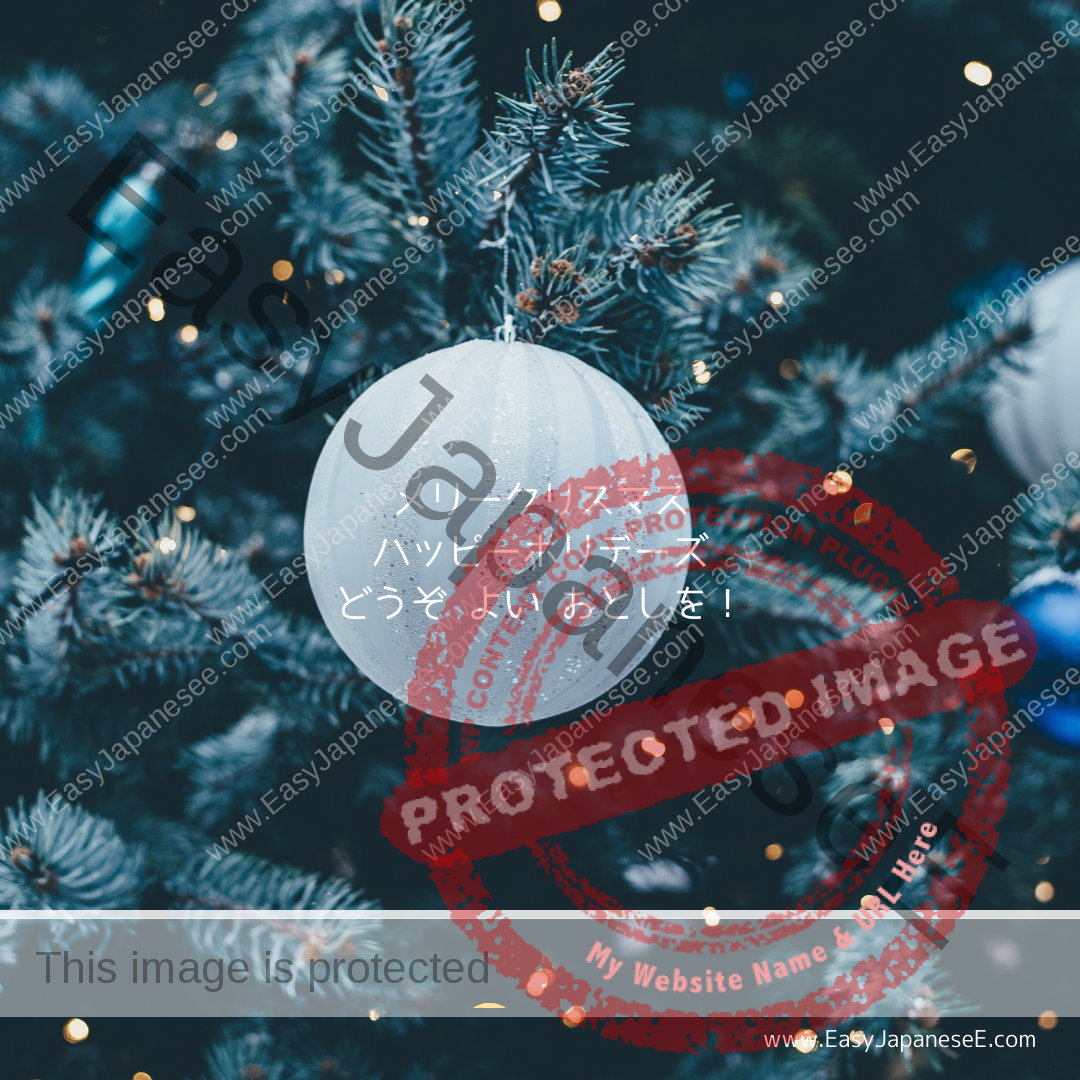
Today is Christmas Eve. Here in Australia, people are frantically preparing for Christmas. Christmas and Boxing Day (26th) are both public holidays in Australia and many businesses close before Christmas until after the New Year starts.
In Japan, Christmas is NOT a public holiday and the way they spend Christmas Day is very different from that in the Western countries.
- To start with Christmas is not the time for families. It is common that (unmarried) couples go out on a date on Christmas eve and have “chicken” – it is believed that a certain American fried chicken chain instigated this…
- Many parents of young children buy presents for their kids in advance and place them somewhere in the house (they usually don’t have a chimney) after they go to sleep on Christmas Eve. Next day they enjoy seeing children exclaim “Santa was here!” but it is not that common for (married) adults to exchange Christmas presents within a family. They have the custom of giving/sending a gift called お歳暮(せいぼ) to those outside the (immediate) family to express thanks for the favours received during the year, but that has nothing to do with Christmas.
- Christmas cake in Japan is usually a strawberry short cake – again it is said that a confectionery company ran a campaign decades ago to sell their products around Christmas time and that became a new tradition!
Family get-together is usually held during the New Year’s celebration instead in Japan. Many grandparents often get to see their children and grandchildren around the New Year’s Day. Children receive お年玉(おとしだま) (New Year’s gift, most often in the form of money in a special envelope) from adults, including visitors to the family during the New Year’s celebration.
As Christmas hasn’t quite become everybody’s celebration, it is not common to send Christmas cards to one another and there is no fixed greeting specific to Christmas in Japanese but you can still purchase Christmas cards and send them in Japan. The most common greeting on those cards would be メリークリスマス in Katakana. クリスマスおめでとうございます would be OK for Christians but Christians are a small minority in Japan. As more and more Japanese people are becoming aware that the greeting “Happy Holidays” is being used instead of “Merry Christmas” in many English speaking countries in consideration for non-Christians, if you so prefer, you can write ハッピーホリデーズ in Katakana as well.
Authentic Japanese greetings around this time of the year
Some people seem to have learned あけましておめでとう(ございます) to be the season’s greeting in Japanese during this time of the year and I have heard many people say that to me around Christmas time, but あけまして comes from the verb 明(あ)けます which means “(for a new year) to begin,” so don’t say that until the new year arrives. Until then, the common greeting is よいおとしを, which is a shortened version of どうぞ良(よ)いお年(とし)をお迎(むか)えください(= (literally) please welcome a good year)。
Japanese people post 年賀状(ねんがじょう), new year’s post cards just like many people here post Christmas cards. On that, you can write following greeting but the phrase to say at the beginning of the year is あけましておめでとうございます。usually followed by ことしもよろしくおねがいします。
Some Examples of written phrases on 年賀状 – they all mean something like “Happy New Year”
賀正(がしょう)
謹賀新年(きんがしんねん)
新年(しんねん)おめでとうございます
謹(つつし)んで新年(しんねん)のお祝(いわ)いを申(もう)し上(あ)げます
迎春(げいしゅん)
Now, I’d like to thank you all for visiting my website and reading my blog posts this year. I’m going to have a short break from tomorrow and resume writing in the new year.
Have a very happy and safe holiday season! May 2021 be a happy year for all of us!!
EasyJapaneseE’s Basic Grammar Exercise Modules
Following short modules are available for subscription! Click the name of a module for more information.

